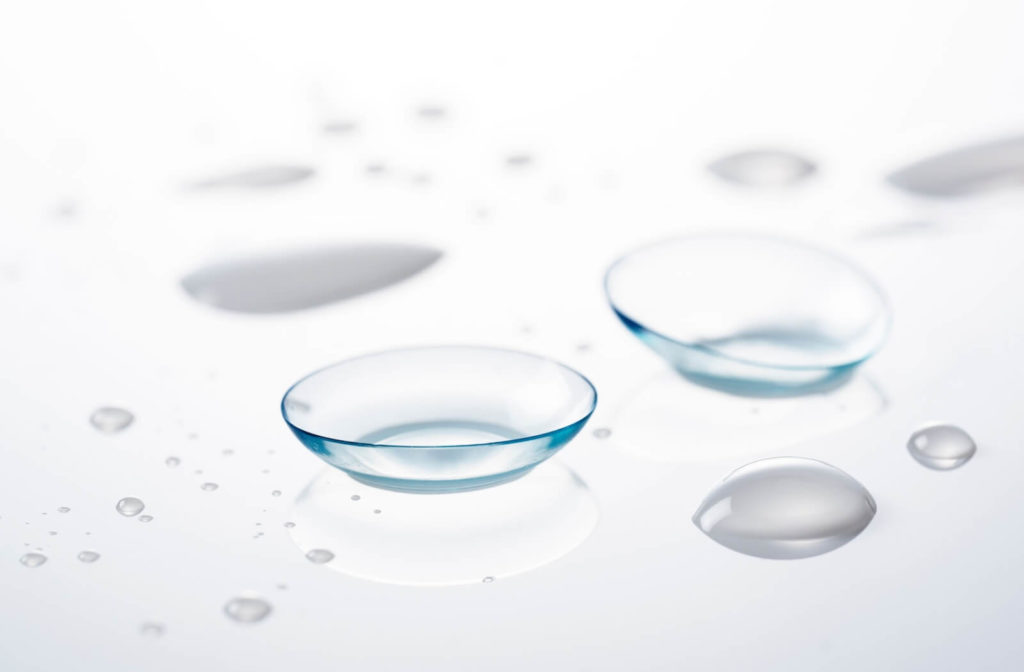Contact lenses can be a convenient and effective alternative to glasses, but like all medical devices, they come with their own set of guidelines for care and use. One question many contact lens wearers often ask is, “Do contact lenses go bad?” The short answer is: Yes, they do. In this blog post, we’ll explore what it means for contact lenses to expire, the factors that affect their longevity, signs that your lenses may have gone bad, and how to ensure their safety and longevity.
What Does Expiry Look Like in Contact Lens Care?
Contact lenses come with an expiration date printed on the packaging. It may be on the box or the individual lens containers. This date indicates the period during which the lenses are guaranteed to remain sterile and safe for use, provided they are stored correctly. Using lenses past their expiration date can lead to several issues, including discomfort, infection, and even damage to your eyes.
Impact of Contact Lens Expiry on Eye Health:
Expired contact lenses can pose significant risks to eye health due to their potential for reduced oxygen transmission, altered material properties, and increased susceptibility to microbial contamination. Prolonged use of expired lenses may lead to discomfort, inflammation, corneal ulcers, and other serious complications, potentially compromising vision and necessitating medical intervention. Therefore, recognizing and respecting the expiration date of contact lenses is essential for safeguarding ocular health and minimizing the risk of adverse outcomes.
It’s essential to be aware of the signs indicating that your contact lenses may have expired or gone bad. These include:
- Discomfort: If you experience unusual discomfort, itching, or a burning sensation, it may indicate that your lenses are no longer safe to use.
- Vision Issues: Blurriness or reduced vision clarity can be a sign that your lenses are compromised.
- Redness or Irritation: Red or irritated eyes can indicate that your lenses are contaminated or damaged.
- Odor: Unpleasant odors from the lens or its storage case can be a sign of bacterial contamination.
Can the Lens Type Be a Factor in Expiry?
The expiration of contact lenses can indeed be influenced by the type of lens, whether they are daily disposables or monthly replacements. Daily disposable lenses, designed for single-use and discarded after each wear, typically have a longer shelf life due to their individual packaging and lack of prolonged storage. Manufacturers carefully determine the expiration date of these lenses to ensure optimal safety and performance throughout their intended usage period.
On the other hand, monthly replacement lenses are intended for daily wear over a one-month period before being discarded. The longer duration of use and repeated exposure to cleaning and storage solutions may increase the risk of microbial contamination and material degradation, potentially affecting the expiration of these lenses.
Therefore, while both types of lenses have predetermined expiration dates, factors such as wear schedule and storage conditions can impact their longevity and effectiveness. Regularly replacing lenses according to the prescribed schedule and adhering to proper storage and hygiene practices are essential for maintaining the safety and integrity of both daily and monthly contact lenses.

Ensuring Contact Lens Safety & Longevity
To ensure the safety and longevity of your contact lenses, follow these best practices:
- Adhere to Expiration Dates: Always check the expiration date before using new lenses and never use them past this date.
- Follow Care Instructions: Use the recommended cleaning and storage solutions, and adhere to the manufacturer’s instructions.
- Regular Check-Ups: Schedule regular eye exams to ensure your lenses and prescription are up-to-date and that they are still fitting appropriately and not compromising the health of your cornea.
- Proper Hygiene: Wash and dry your hands thoroughly before handling your lenses to avoid contamination.
- Case Care: Replace your lens case every three months and rinse it regularly with fresh contact lens solution.
Importance of Regular Eye Exams in Contact Lens Care
Routine eye examinations play a vital role in ensuring the ongoing safety and effectiveness of contact lens wear. During these exams, eye care professionals assess not only visual acuity but also the health of the cornea, conjunctiva, and surrounding ocular structures. By monitoring for signs of irritation, inflammation, or infection, optometrists and ophthalmologists can detect early indicators of contact lens-related complications and intervene promptly to prevent further damage.
Additionally, regular eye exams allow for adjustments to contact lens prescriptions based on changes in refractive error or ocular health, optimizing visual outcomes and comfort for the wearer. Therefore, scheduling periodic check-ups with an eye care provider is essential for maintaining the long-term safety, comfort, and efficacy of contact lens wear.
The Path Towards Healthy Eyes
With all things considered, contact lenses do go bad, and it’s crucial to be aware of the factors that affect their longevity and signs that they may have expired. By adhering to proper care guidelines and being vigilant about the condition of your lenses, you can ensure your eyes remain healthy and your vision clear. Remember, when it comes to your eye health, it’s always better to be safe than sorry.For more tips on contact lens safety and care, contact us today to book an appointment at Headwaters Optometry in Orangeville to learn more about contacts and if they are the right fit for you!




